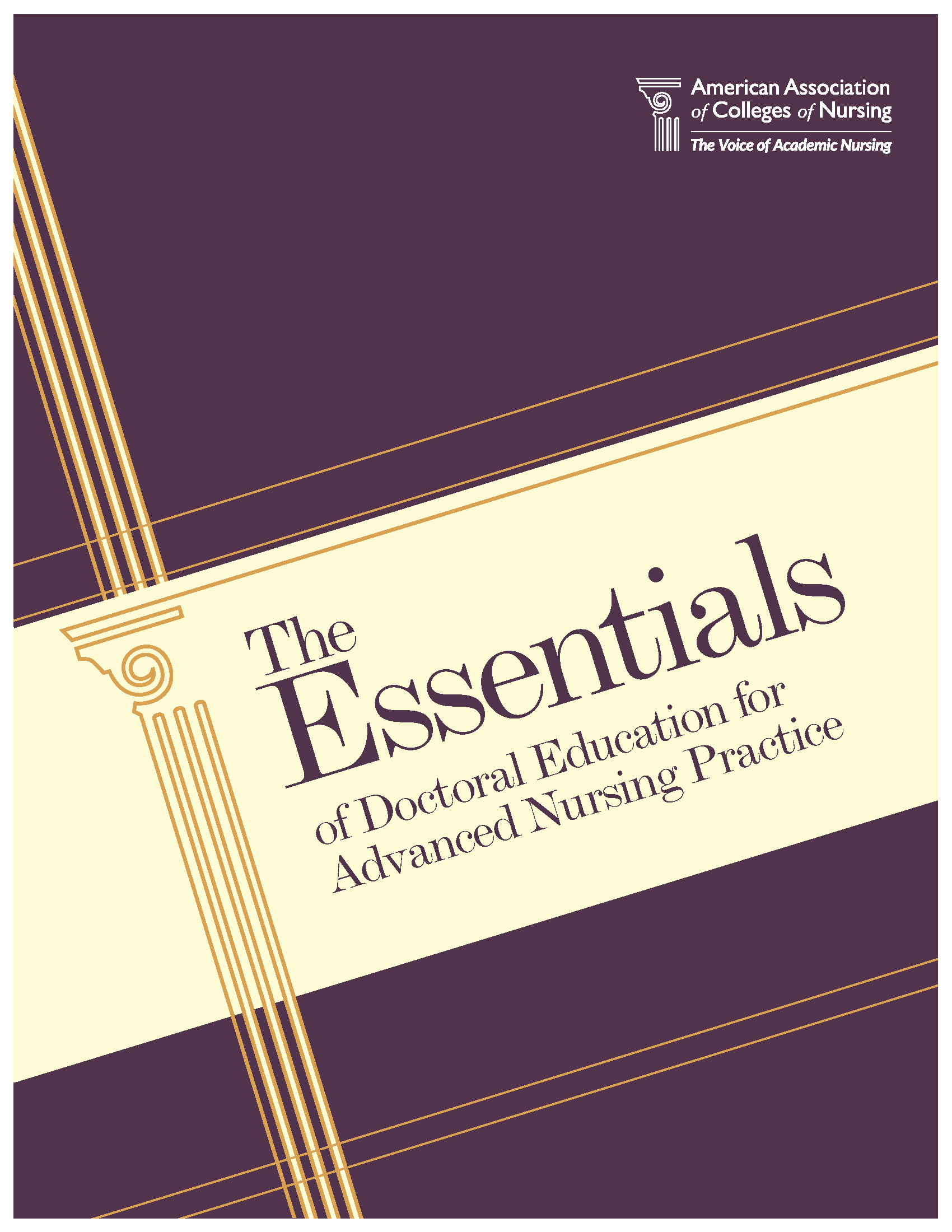Reflective Journal – DNP 830
Reflective Journal – DNP 830
This reflective journal essay aims to demonstrate individual perspectives about the course, DNP 830. It provides the breakthroughs and difficulties experienced during the course in achieving course objectives and the competencies provided by the American Association of Colleges of Nursing’s (AACN) Essential of Doctoral for Advanced Nursing Practice. These essentials are core to every advanced nursing practice role. The course offered opportunities to develop these core competencies aligned with the AACN essentials through the various course activities.

Reflection
This reflective journal demonstrates the individual learning experiences throughout the course, strategies adopted to achieve course objectives, and knowledge gained. It summarizes the weekly reflections and the competencies gained through the weekly course activities. Throughout the course, the following essentials were accomplished:
Essential I: Scientific Underpinnings for Practice
The DNP course presented multiple challenges and complexities, besides opportunities to advance knowledge and skills on DNP essentials. The course was demanding and required high-level engagement, especially in completing weekly assignments that align with the scientific underpinnings of practice. From identifying healthcare issues affecting the patient to PICOT-D question development, literature search and evaluation, and the development of annotated bibliography, this student developed an understanding of scientific knowledge development and the process of scientific research aimed to develop knowledge and intervention to improve patient outcomes. It was my first time developing a PICOT-D question because, previously, this nurse scholar was required to develop PICO or PICOT question. It was challenging at first to understand how to integrate the “D” or data element in the PICIOT question, but the instructor feedback and the PICOT-D question template guided the nurse scholar to successfully develop a PICOT-D question.
All weekly assignments were aligned with the first essential. This nurse scholar discovered high-level elements of the research process but experienced challenges with the literature search and evaluation. This course required using quantitative research only to support the PICOT-D elements and proposed intervention. It is easier when both qualitative and quantitative sources are used because it requires a robust search of databases to establish quantitative sources only. However, it was an opportunity to discover and learn more about different types of quantitative research designs and how to identify them based on the methodology adopted. The research process allowed this nurse scholar to link the research question or PICOT-D question to evaluated research methodologies and outcomes and discover how the sources identified supported or informed current research. The weekly course resources, including reading materials, discussions, and learning activities reinforced the understanding of this course competency.
Essential II: Organizational and Systems Leadership for Quality Improvement and Systems Thinking
The primary aim of the research is to influence change by generating deeper insights into a research problem and developing new thinking approaches to address situations for more desirable futures or outcomes. This nurse scholar is required to identify a quality improvement opportunity or a research opportunity focusing on the patients. This course provides materials and resources that supported the identification of the patient’s health issue through the weekly assignments, discussions, and readings. This nurse scholar developed the skills and capacities required to catalyze, enable, and promote systems-level change. The course combines collaborative leadership and systems insights critical for quality improvement and system thinking needed to develop effective action and solutions in complex situations, enabling systems change. Collaborative leadership calls for effective communication skills for the successful development of quality improvement initiatives to enhance patient quality and safety. Although the process was challenging for this nurse scholar, it enhances career preparedness, particularly enabling change.
Essential III: Clinical Scholarship and Analytical Methods for Evidence-Based Practice
Evidence-based practice is a requirement in current practice to ensure informed nursing decisions. The DNP course was practice-based, and learners are required to practice per evidence-based practice. The course activities, from developing a PICOT-D question to literature evaluation and review align with this essential, which requires the DNP to search for the best available evidence and use it in practice to solve a patient health issue. The learner is responsible for understanding nurse practice and increasing clinical and leadership skills through research translation into standard care. The course offers valuable insights into adopting the evidence-based practice to improve care systems and examine patient outcomes for the selected patient population. In disseminating best practices, this nurse scholar reviewed quantitative data, sorting out studies that are relevant and accurate to support the quality improvement initiative.
Conclusion
This reflective journal sought to offer individual experiences with the DNP course and the strategies adopted to accomplish the course objectives and attain the core competencies per the AACN’s essentials. Despite the numerous challenges experienced during the course, this nurse scholar accomplished essentials I, II, and II. The competencies developed will help advance career and ability to care for patients at the highest level.


